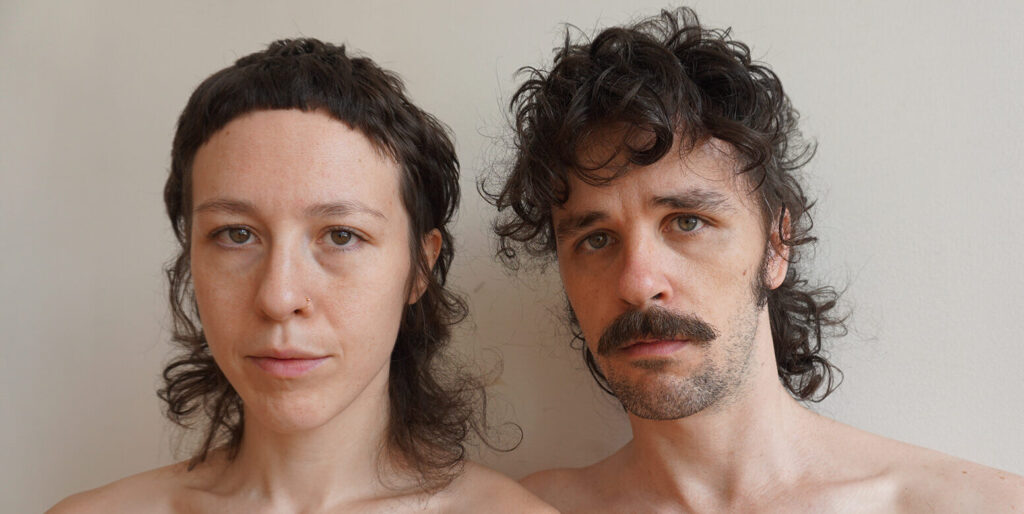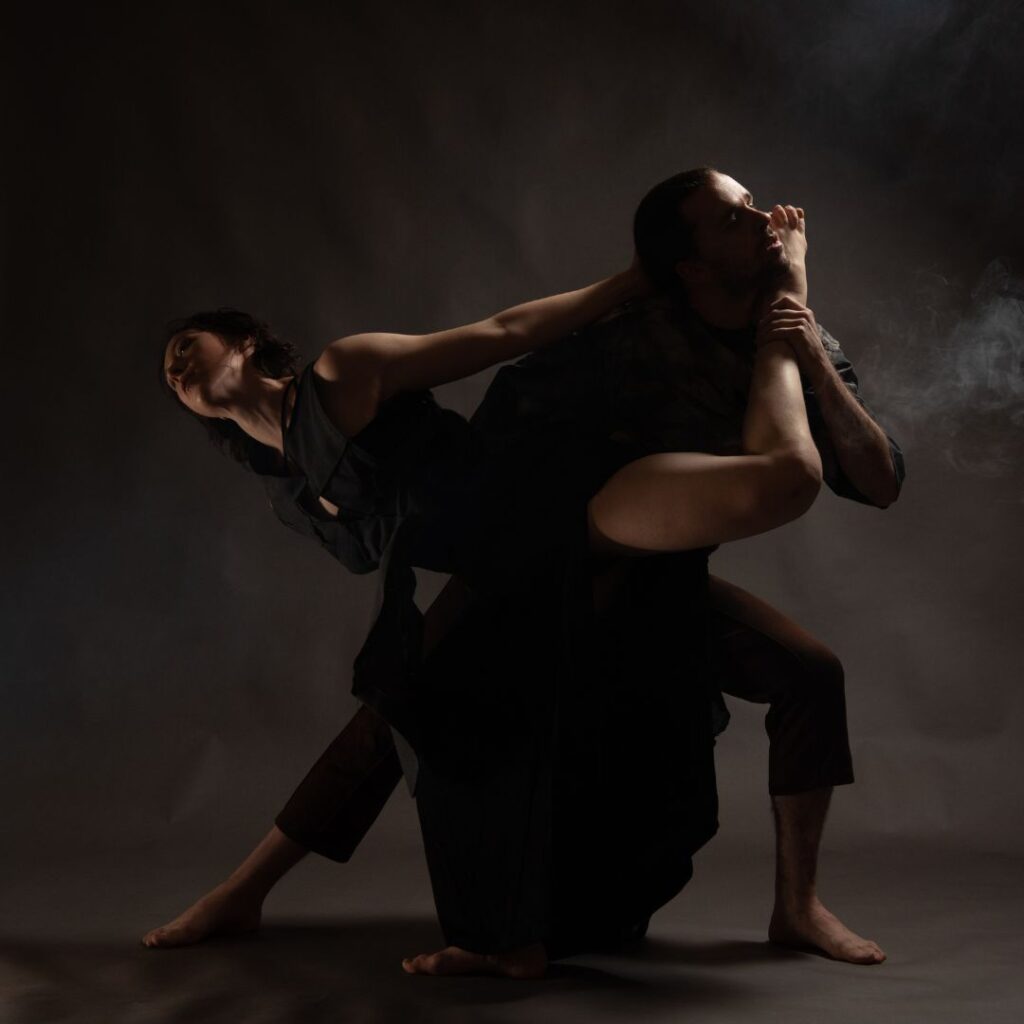Performance Duo slowdanger Selected For Inaugural New Work Development Artist Residency
The multidisciplinary performance duo slowdanger has been selected for the inaugural New Work Development Artist Residency at the Texas A&M College of Performance, Visualization and Fine Arts.

The multidisciplinary performance duo slowdanger has been selected for the inaugural New Work Development Artist Residency at the Texas A&M College of Performance, Visualization and Fine Arts.
Founded in 2013, slowdanger features performance artists taylor knight and anna thompson. The artists — who prefer the lowercase version of their names — will create and perform new work, collaborate with students and faculty and give interdisciplinary presentations from Sept. 2 through Nov. 2.
The Pittsburgh, Pennsylvania, artists were selected from 160 applicants by the college’s Artists and Scholars in Residence Committee, according to Dr. James R. Ball III, associate dean for industry and community engagement. Ball viewed a slowdanger performance in 2021 and was intrigued by its experimental engagement through sound design. Ball said the duo’s application captured the committee’s attention.
“Everyone got excited about what they do and how they cross between many of the interdisciplinary areas that we’re interested in: music, dance, computer science and technology,” he said. “It was clear they were going to take advantage of this time to begin work on a new project that could go places and do exciting things.”
The length of the residency allows the artists to engage with the campus community, which is crucial to the new work development process, Ball said. The artists receive a $10,000 stipend for living expenses, project materials, lodging, access to school facilities and student assistance.
They have already begun collaborating with the Dance Science and Performance and Visual Studies programs.
At a recent University of Maryland residency, knight and thompson — whose pronouns are they/them — presented their work about environmental collapse and climate change titled “SUPERCELL.”

Though their background is primarily in dance and movement, knight said slowdanger focuses on experimental performance through noise, both ambient and techno variations. They concentrate on space and the body’s relationship to the environment, knight said.
“We see sound as a space, vibration, living architecture in the world,” knight said. “We also find ways for the body to be the conduit of the sound and producer of the sound, which has led us to collaborations with technologists, computer science and computer programming.”
One of the goals in a slowdanger performance is to present the audience with an intersectional collision of people, ideas and disciplines, thompson said.
“Intersectionality as it relates to class, race, gender, sexual orientation and generational intersectionality is really important to us,” thompson said. “We also develop interdisciplinary advisory committees for new work that we create, which helps support the community that is created for the audience that might come to the work.”
The residency will include developing a new work titled “Story Ballet,” a contemporary recontextualization of “Symphonie Fantastique,” composed by Hector Berlioz in 1830. They will transpose the score to electronic instrumentation, thompson said.
“The ‘Symphonie Fantastique’ is this surreal tale of obsession, addiction and self-destruction,” thompson said. “Our performance will not be a traditional ballet, as we explore the intersection of addiction and mental health destigmatization.”
The performance will also feature a technique invented by John Henry Pepper in 1862. “Pepper’s Ghost” creates the illusion of a holographic projection onstage. The performance will include a cast of five people and insight from other performance collaborators brought in by the artists.
“Over the years, we discovered that having different elements of visualization, set design, projection, dance or costumes are all different entry points into the performance,” knight said. “Texas A&M sounds like the perfect place for us to explore many of these different elements because there is that celebration of interweaving these disciplines.”
Ball said through this residency, the school is learning how to support artists and their creativity. Higher education institutions play a pivotal role in creating and developing new works in these settings, he said.
“I want the artists to come out of this feeling like it was an extremely productive moment for their creative process,” Ball said. “I want them to tell their friends and colleagues around the country, ‘We were able to do things at A&M we couldn’t do anywhere else.’”
The opportunity to be immersed in a new place and to connect with students and faculty is an exciting one, thompson said.
“I really hope we can create these entry points for engagement and learning that aren’t always in the collegiate curriculum,” thompson said. “That we can kind of be the outsiders that get to move in and out and have these engagements with people that maybe are different than what they would expect.”